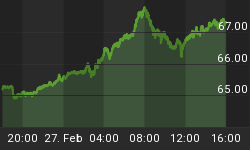It’s not just you who’s aging. Our world is getting old. By next year, 55-year-olds will outnumber 5-year-olds. By 2050, the number of people aged 50 and older will rise to 3.2 billion--a twofold increase since 2015.
Baby Boomers, born between 1944 and 1964, are now desperately searching for the “fountain of youth”, and the market is finally responding.
The anti-aging market is believed to be one of the fastest-growing market segments in existence. Last year, the Global Anti-Aging Market was worth $42.5 billion, and estimates are that it will reach $55.03 billion by 2023.
Aside from the “traditional” anti-aging products, there has also been a dramatic rise in the number of companies offering various treatments and products of a more extreme nature. Few of them are approved by the Federal Drug Administration (FDA).
But the potentially most exciting part is this: Scientists now believe it may be possible to reverse a person's biological age with a combination of drugs and growth hormones. The prospects are still far away, but there has been enough movement to make the anti-aging market’s mouth water:
A small, one-year clinical trial published in the Aging Cell journal, has suggested for the first time that it might be possible to reverse the biological age.
In the trial, led by immunologist Gregory Fahy, the chief scientific officer and co-founder of Intervene Immune, nine participants aged 51 to 65 were given a combination of growth hormone and two types of diabetes medications during the study. On average, their biological ages were reduced by an average of 2.5 years. Related: Are Investors Being Lulled Into A False Sense Of Security?
The researchers spent a year running the Thymus Regeneration, Immunorestoration and Insulin Mitigation (TRIIM) trials.
Initially, the trial was meant to test whether a growth hormone and drug combination could be used safely in humans to restore thymic function lost due to aging.
Apparently, even the scientists who worked on the study were surprised by the much more dramatic results.
Geneticist Steve Horvath at the University of California, who conducted the study, told Nature magazine: "I'd expected to see slowing down of the clock, but not a reversal. That felt kind of futuristic."
Still, researchers caution that the findings are only preliminary because the trial was small and did not include a control arm. But there is no doubt that many companies will cling onto the trial results and various “miraculous” products will hit the market.
It’s happened before.
Earlier this year, the FDA issued a warning that plasma infusions from young people provide no proven clinical benefit against normal aging and a handful of illnesses, as promised by the companies selling it. They all were citing several studies claiming this to be true, despite the fact that tests were only conducted on mice. Nothing stopped the product from hitting the market because of the frenzy to reverse aging.
Even though the FDA statement didn't call out any companies by name, it was clearly targeting the best-known among these—California-based Ambrosia Medical, which since 2017, has been selling its ‘anti-aging” treatment for $8,000 for one liter of blood and $12,000 for two.
Following the agency’s warning, the company ceased patient treatments but others out there have not felt the need in this hungry market.
A company called Elysium Health is one. It’s managed to convince Nobel Prize winners to help sell its $50/month supplement promoting “longevity”.
And last year, a former Florida-based mortician and doctor announced the launch of a clinical trial giving participants blood infusions from young donors for a modest $285,000 “enrollment” fee. Related: Insurance Businesses Are Fleeing The UK In Droves
Even the big dogs are toying with the idea.
Google’s parent company, Alphabet, has invested heavily in its secretive anti-aging spinout called Calico.
Celularity, a biotech giant Celgene spinoff, raised $250 million last year to try to use postpartum placentas to delay the aging process.
But from the FDA’s perspective, this is the 21st-century snake oil—and none of it has been proven. We’ll see what it says when the latest journal study inching towards biological age reversal starts inspiring more marketers.
By Tom Kool for Safehaven.com
More Top Reads From Safehaven.com:
















